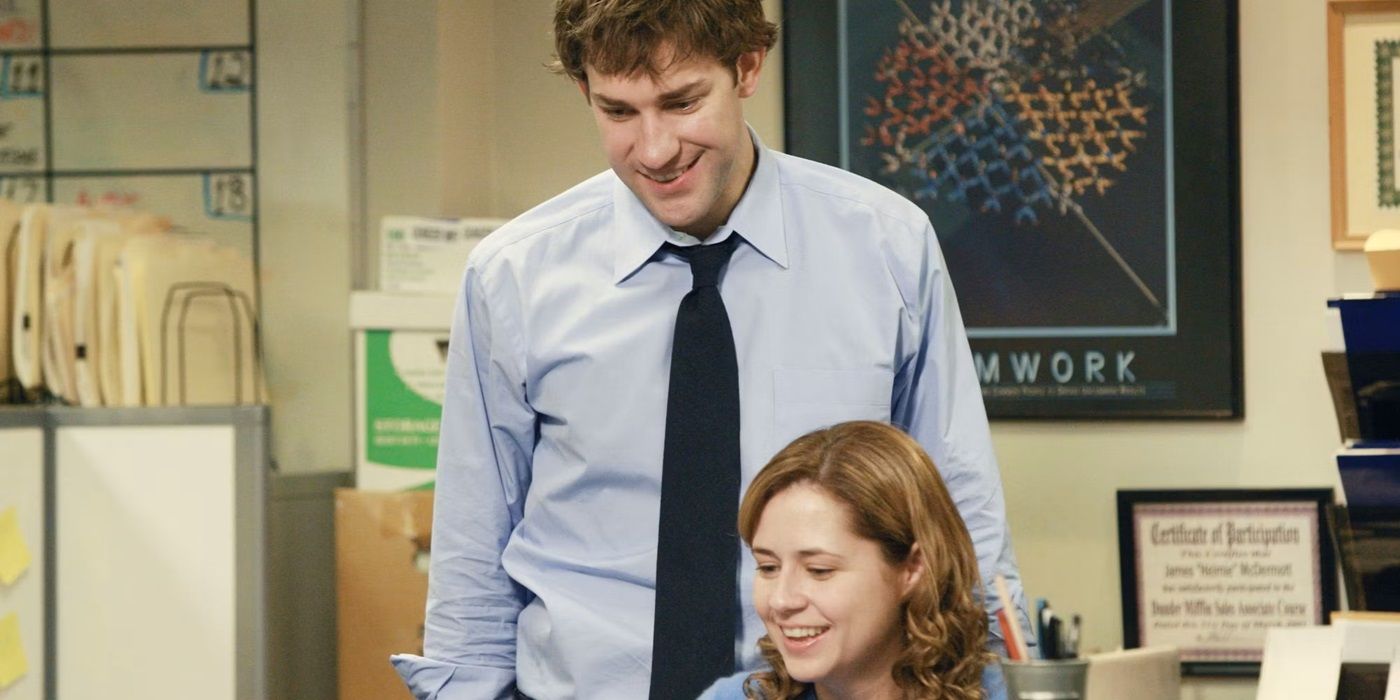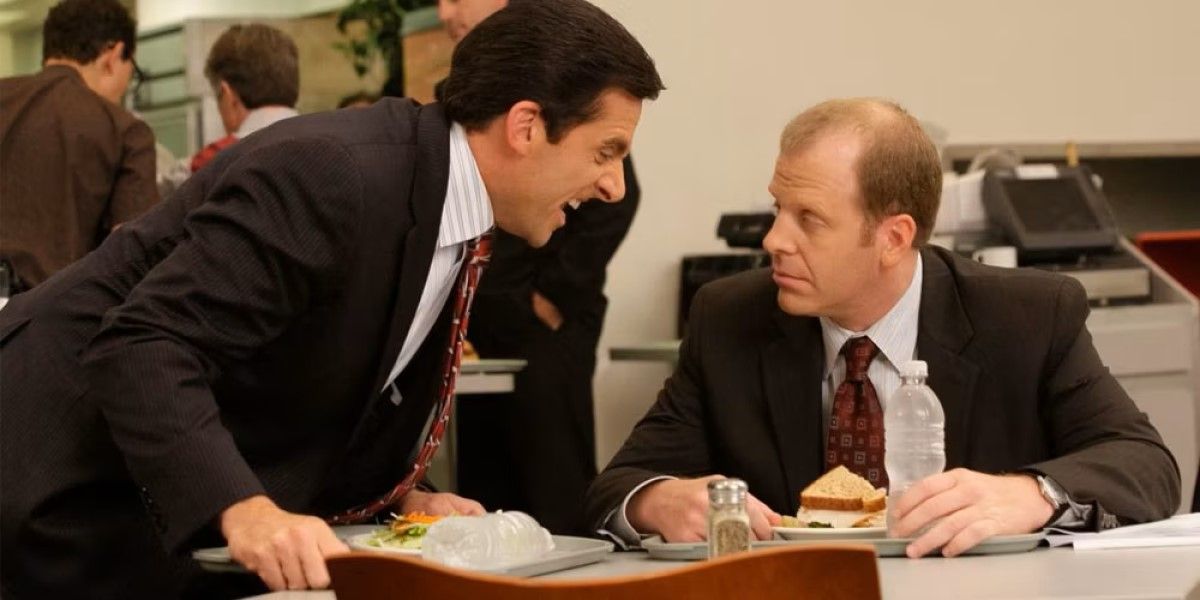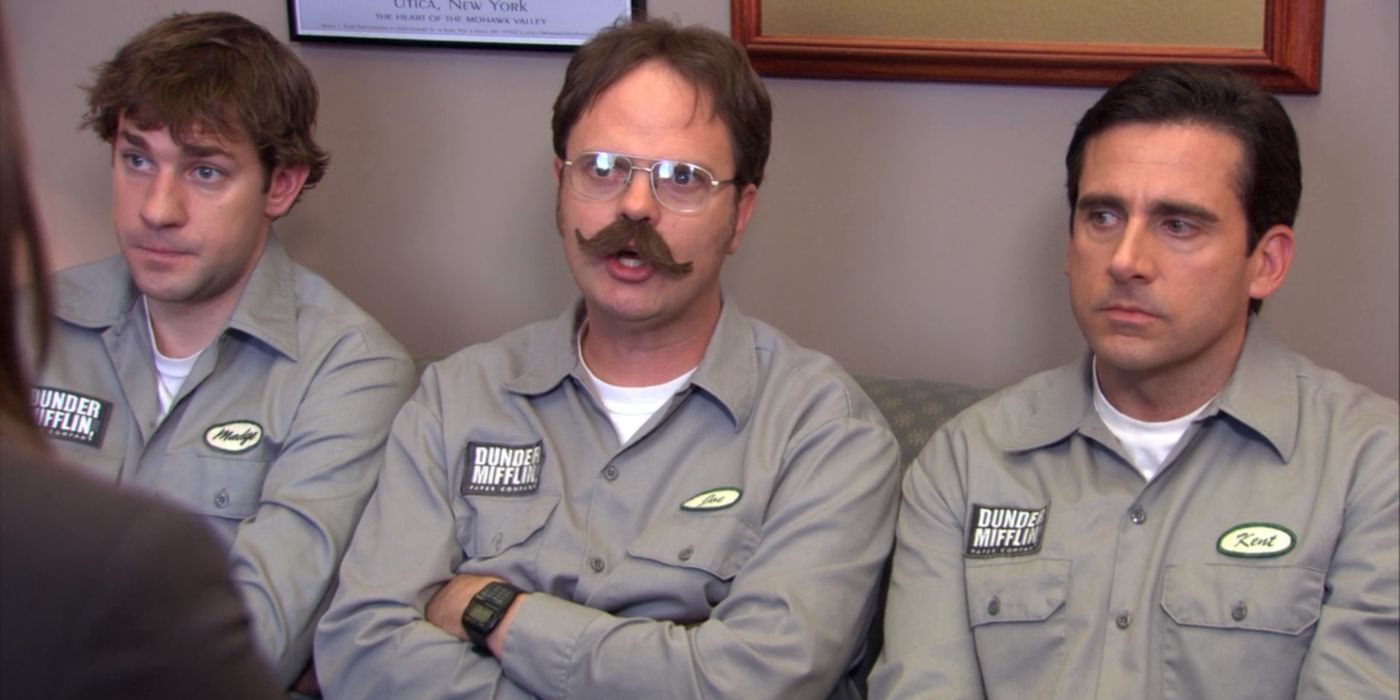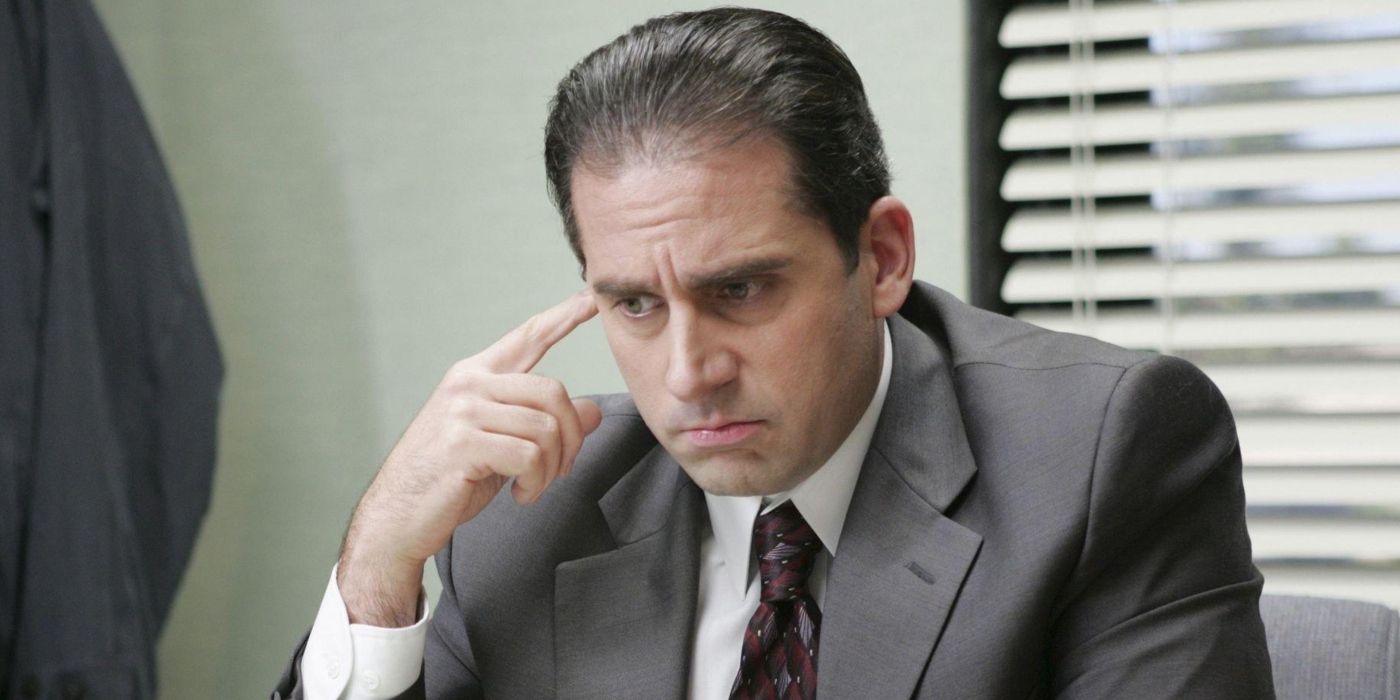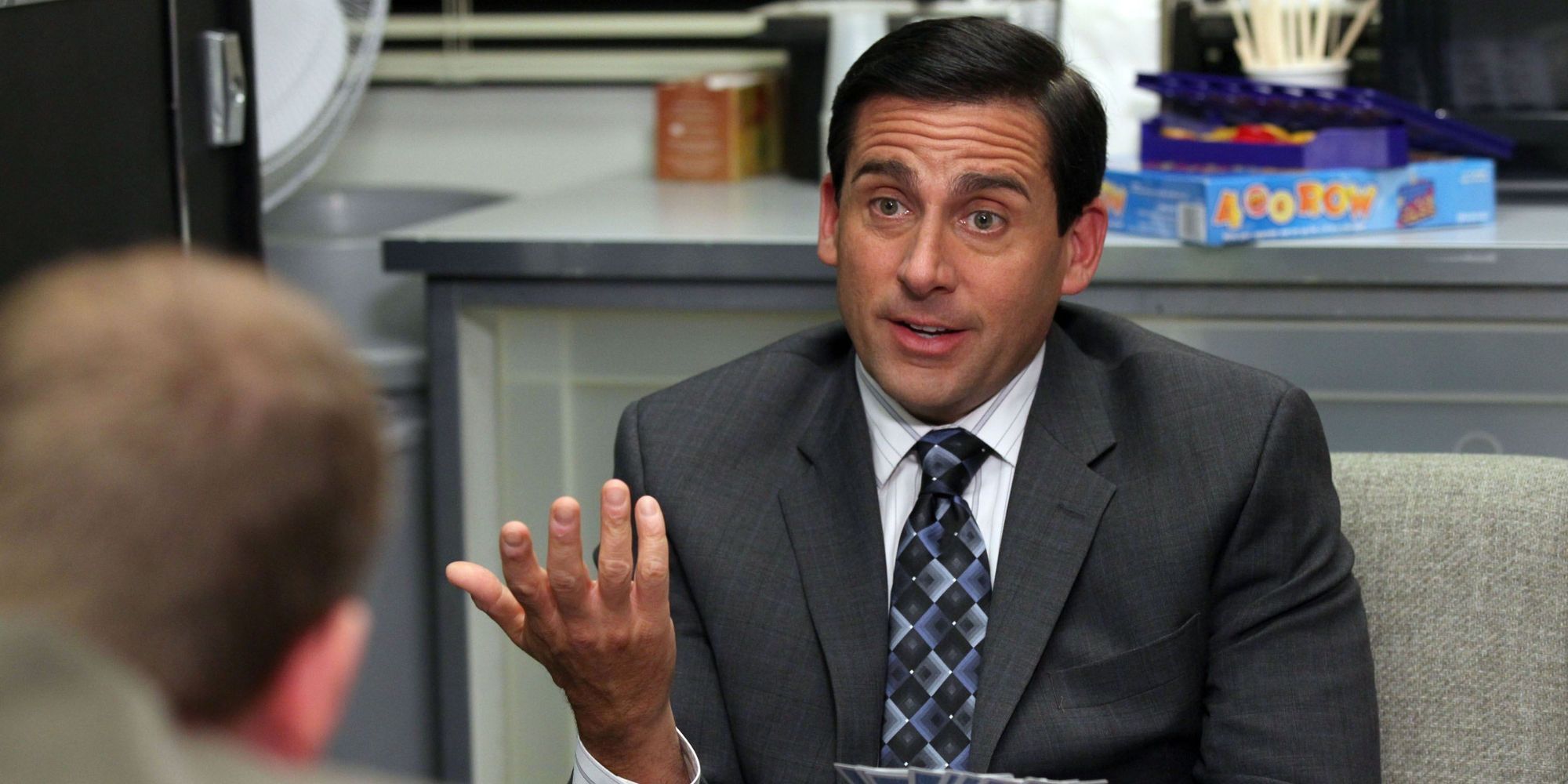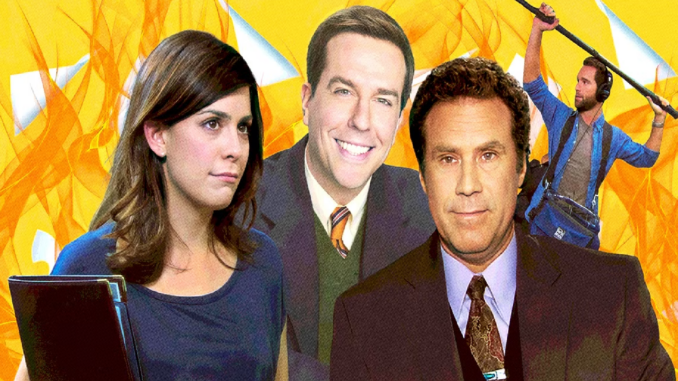
Across nine seasons, NBC’s The Office told dozens of hilarious and heartwarming stories. Unlike many sitcoms preceding it, the mockumentary managed to sustain narratives over several episodes, not always tying up conflicts before the credits rolled. For the most part, this was a fruitful approach, as it allowed characters to endure consequences, feel emotions, and grow beyond the constraints of a 30-minute block. However, not all storylines on The Office were prolific. Will Ferrell‘s brief run as Deangelo Vickers, the Schrute Farms spin-off attempt, and Andy Bernard’s (Ed Helms) slow fall from grace are just a few arcs that fans look back upon with disapproval. The most ill-fated of them all, though, came in Season 9, with a storyline and character introduction that put much of the series into question.
Jim and Pam’s Relationship Takes a Weird Turn
In The Office‘s ninth and final season, distance and career changes challenge Jim (John Krasinski) and Pam’s (Jenna Fischer) relationship. Though the married couple has long been a beacon of touching empathy on the show, Jim’s decision to quit Dunder Mifflin, move out of Scranton, and co-found a sports marketing company with his friends tests the pair’s commitment. Tensions boil over in the episode “Customer Loyalty,” when Pam fails to record their daughter’s dance recital for Jim, and he gets mad at her over the phone. After Jim hangs up, Pam bursts into tears.
On its own, this is a strong storyline, as the audience gets to see the seemingly perfect couple undergo tests and trials. The ill-fated aspect only arrives after Pam’s tumultuous phone call with Jim. Through her tears, she looks off-camera and utters the name “Brian.” At this point, the show introduces Brian Wittle (Chris Diamantopoulos), the boom operator who’s been working with the Dunder Mifflin documentary crew since the very first episode. He comes into the frame, consoles Pam, and urges the crew to turn off the cameras.
According to Andy Green‘s book The Office: An Oral History, showrunner Greg Daniels always wanted to pull back the curtain on the documentary. Producer Michael Schur, however, resisted the idea. Come the last season, though, Schur had shifted his attention to Parks & Recreation, giving Daniels the liberty to experiment as The Office approached its finale. Thus, he tore down the diegetic fourth-wall with Wittle — a character named after and inspired by the show’s real-world boom operator. He debuts in “Customer Loyalty” and reappears in four additional episodes across the final season.
Revealing the Crew Created Confusion on ‘The Office’
Given how fans reacted to Brian, it seems Schur was right to oppose Daniel’s unveiling concept. Allowing the documentary crew to participate in the action of the show raises a long list of questions. Where were they in previously dire situations? What is their code of ethics? Why did cameras follow Jim to Stamford and Pam to New York, but not Michael (Steve Carell) to Colorado? Perhaps the explicit omnipresence of cameras even calls into question the characters’ authenticity over the past eight years.
The show tries addressing some of these concerns in the episode “Promos.” Here, the trailer for the documentary airs, and the subjects are shocked to find that it includes footage from private moments: moments where they didn’t know they were on-camera. Pam asks Brian about this, and Brian tells her that the crew has essentially captured every second of their lives for the past eight years, even when they didn’t consent to being filmed. Aside from the huge moral issues this raises — all of which are underwhelmingly accepted by the end of the episode — it also creates plot holes in the series. If characters didn’t know they were being filmed during private moments, then why did they comment on those very moments in the asides? It doesn’t make sense.
Brian Is More Selfish Than Michael and Dwight
These paradoxes inherently undermine the character of Brian himself. He is meant to be charming and likable, and seems so at first. In addition to consoling Pam in “Customer Loyalty,” he also defends her from assault in “Vandalism,” which gets him fired from the documentary crew. While the moment he steps between Pam and an aggressive warehouse employee is an act of valiance, where was Brian in other threatening situations? Just a few episodes earlier, he stood idly by when Angela (Angela Kinsey) hired a hit man to kill Oscar (Oscar Nuñez). In Season 5, he didn’t stop Dwight (Rainn Wilson) from nearly burning down the office in “Stress Relief” and in Season 3, he let Michael come within steps of jumping off the roof in “Safety Training.” Evidently, there were other, even more severe situations where Brian could have stepped in, but didn’t.
Though never stated explicitly, it’s suggested that Brian defends Pam because he has a crush on her. This is especially implied in the episode “Couple’s Discount,” where Brian reveals that he and his wife recently separated. It adds dramatic tension, as the audience starts to question if Pam will have an affair with Brian given the rocky patch she undergoes with Jim. Beneath the surface, though, this just affirms Brian as selfish. In eight years, he never saved or helped anyone else as the documentary captured them in moments of despair and danger. Only when it might indirectly benefit him — in an adulterous manner, no less — does he breach protocol. In a show filled with hedonistic characters, Brian somehow comes out among the most egocentric.
‘The Office’ Never Needed a Fourth-Wall Break
Aside from the moral affronts Brian brought to the universe of The Office, engaging the crew also had an inherently negative impact on the viewers’ relationship with the show. The Office‘s mockumentary style was never lovable because we believed there were filmmakers and cameras in every room. Instead, the rawness lent the show a relatable earnestness. When characters talked to or glanced at the camera, we felt that they were addressing us.
This directness between viewer and character is one of The Office‘s most enduring strengths, and introducing the crew created an unnecessary barrier to that candor. Luckily, Brian did not last long on the show, and his character, alongside this strange, participatory plotline, stands only as an outlying stain on an otherwise satisfying final season to nine beloved years of television.

